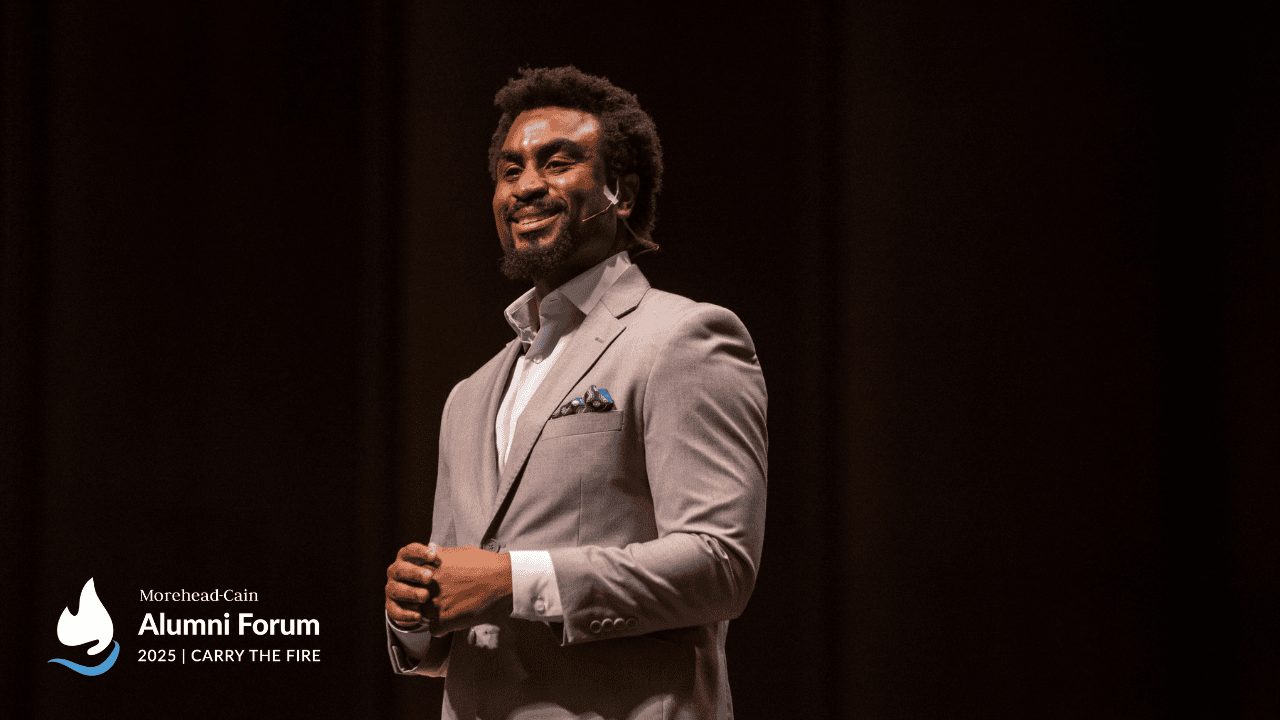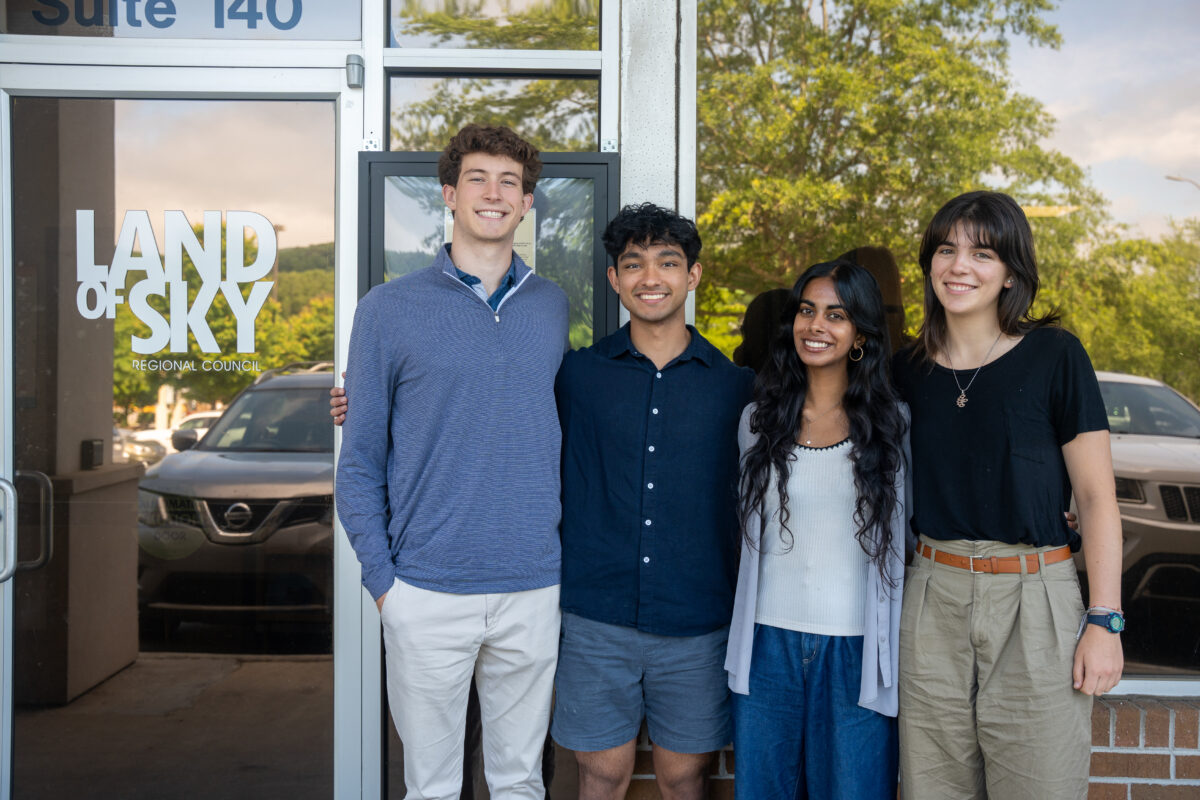
Morehead-Cain Scholars partnered with Land of Sky Regional Council to help modernize services for aging populations.
In the wake of Hurricane Helene, communities across Western North Carolina have faced immense immediate and systemic challenges. While one Civic Collaboration team supported disaster recovery in Black Mountain, another set out to support aging populations just down the road in Asheville.
Through the Morehead-Cain Civic Collaboration program, rising sophomores and juniors spend eight weeks working alongside regional partners to tackle real-world problems. The Asheville team focused on modernizing services for aging populations, aiming for a technology-based solution that would be both practical and deeply human-centered.
Teammates Sofia Chan ’27, Harsehaj Dhami ’28, Walter Marr ’28, and Ibrahim Mohsin ’28 partnered with the Land of Sky Regional Council to modernize services for older adults across Buncombe, Henderson, Madison, and Transylvania counties. The Area Agency on Aging (AAA)—which supports some of the residents most affected by Hurricane Helene—was seeking ways to better meet demand amid ongoing staffing shortages and increased service needs.
With a clear problem statement in mind, the team set out to build a tool that could help. The result was SkyNav, an SMS-first AI care-navigation service designed to connect caregivers and aging adults with appropriate resources while also easing the burden on agency staff.
The system serves both community members and administrators: users receive real-time, personalized information through text messaging, while AAA staff can rely on the tool to streamline and organize resource referrals in one centralized platform.
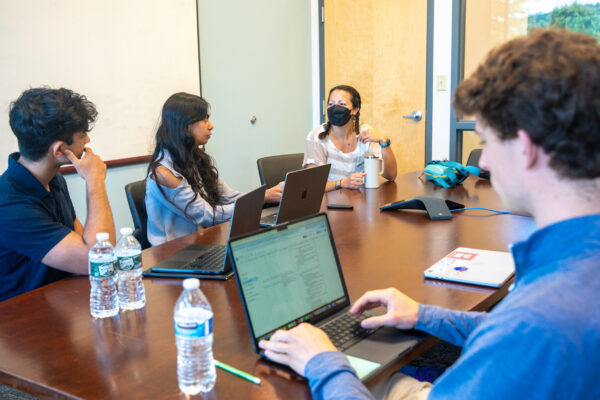
The scholar team conducted ethnographic interviews with caregivers and Land of Sky employees.
The team’s work began with empathy. Mohsin wanted to know how they could create something that caregivers would actually want to use, and how they’d set the Land of Sky administrators up to train caregivers effectively once the students concluded their summer.
“Since none of us here are primary caregivers, how can we understand that role as much as possible and then create technology they can access?” The scholar asked.
The team defined the core dilemma as two-fold: caregivers often don’t know what resources are available or how to efficiently find the right support, while agency staff are overwhelmed by inquiries and unable to offer around-the-clock guidance.
The solution had to balance technological innovation with respect for community dynamics and capacities.
As an out-of-state student, Western North Carolina was a very foreign place to Chan when she received her Civic Collaboration summer assignment.
“One thing we discovered through interviews is that this is a niche community nestled within the mountains, very tight-knit, and where everyone leans on each other. So, when implementing a solution, we needed to fit into that existing sense of community instead of creating some industrial thing that may not belong here,” the New Jersey native said.
For LeeAnne Tucker, the partnership filled a long-standing gap.
“It felt like the obvious next step, but it was a step we could not take on our own,” the AAA director said. “We didn’t know how to get there. So, when the scholars said, ‘Let’s do it,’ we were thrilled. Not just that they wanted to take the project on, but that they were committed to shaping something truly useful for us now and, hopefully, years down the road.”
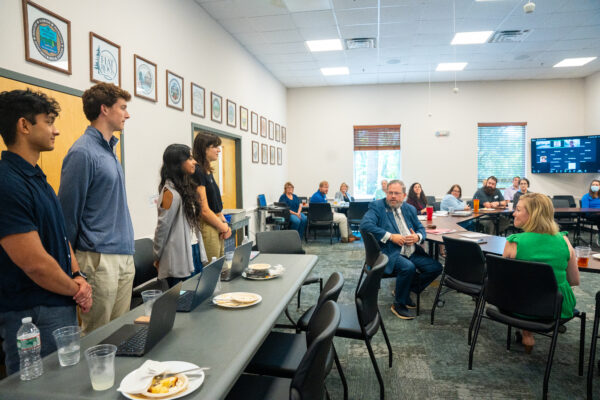
The scholars joined the Regional Aging Advisory Council to build relationships with local leaders and present their final project.
Ultimately, the team’s mission was grounded in service, aiming to provide a truly sustainable solution that addressed real, not just perceived, needs, something that AAA partners could use without continued dependence on the scholars who built it.
This project represents a major step forward not only for the Area Agency on Aging but also for the Land of Sky Regional Council as a whole, demonstrating what’s possible when rural communities embrace innovation without compromising their values.
“Our hope with Civic Collaboration is that scholars get a taste of what it takes to research a local issue and partner with the community to explore creative solutions,” Scholar Advisor Ann Taylor Shaw said. “When teams prioritize their community partnerships, it contributes to the long-term impact and viability of their recommendations.”
The summer’s project in Asheville demonstrates the adaptability and impact of the Morehead-Cain Civic Collaboration program. In less than nine months following a major natural disaster, not one, but two scholar teams were deployed to work on urgent, context-specific issues with local partners. The students’ contributions have been practical, immediately implementable, and designed for long-term sustainability.
Morehead-Cain’s commitment to civic collaboration fosters learning that goes beyond academics, providing scholars with real-world experience while delivering qualitative benefits to local communities. As this team concludes its summer, their work continues to shape how Western North Carolina innovates to serve its aging population.
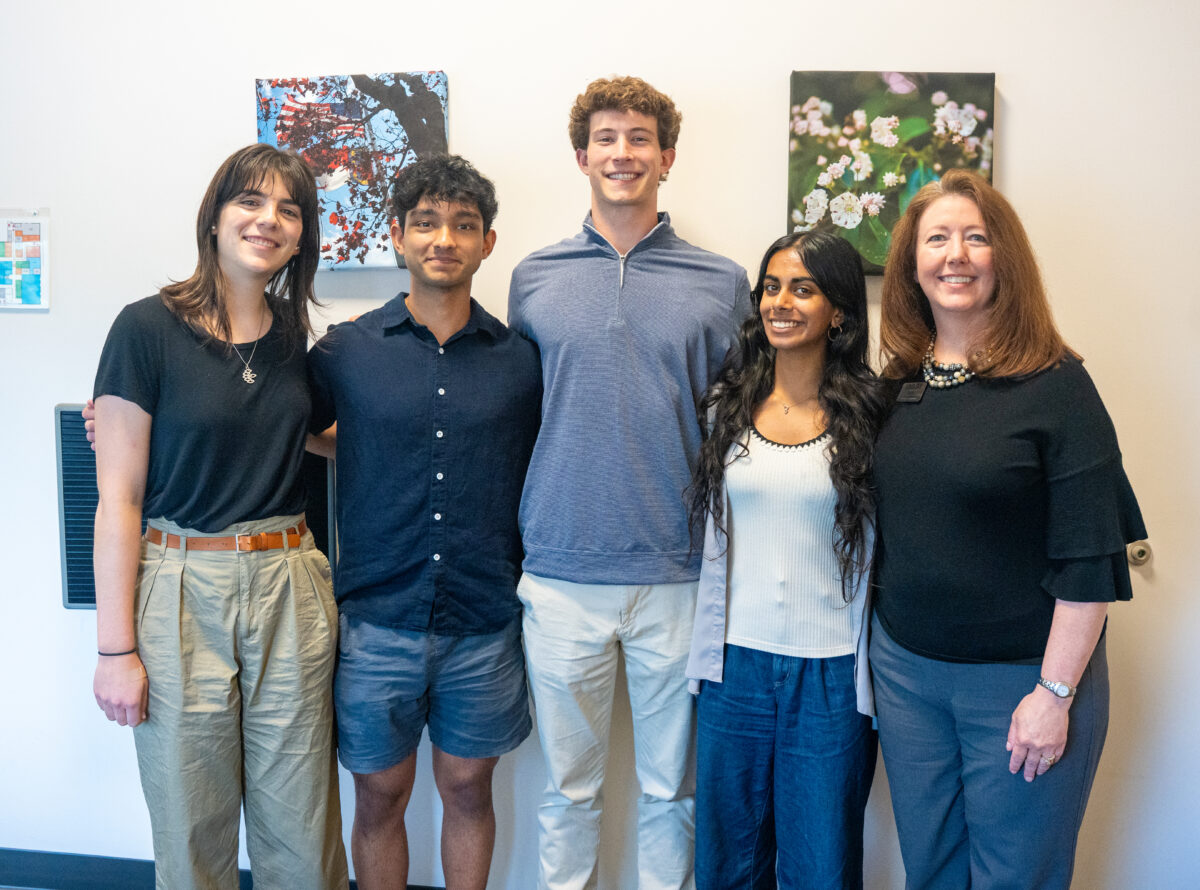
From left to right: Chan, Mohsin, Marr, Dhami, and Tucker.

